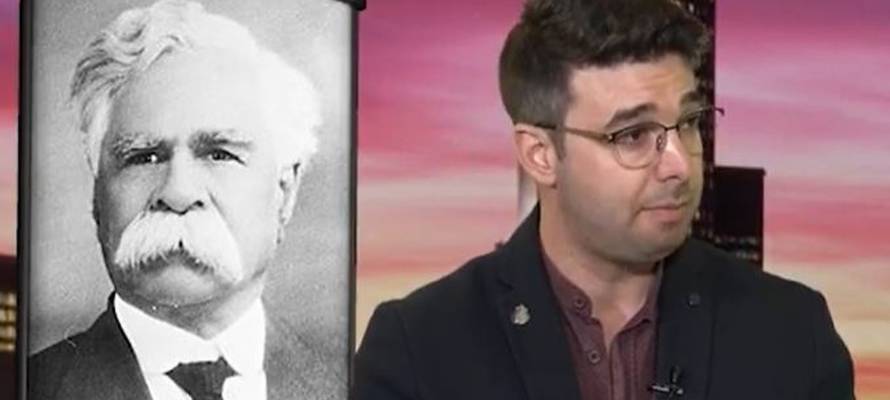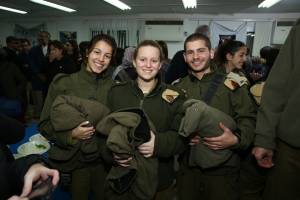The aim is not only to entertain, but also to educate about a nearly unknown Australian protest against the persecution of Jews during the Holocaust.
By United with Israel Staff
A classical music piece has been created to describe the events in Germany leading to the pogrom of 1938, known as Kristallnacht (the night of broken glass), five years after Adolf Hitler had come to power.
Six million Jews were murdered during the Holocaust. The systematic extermination of Jews started with Kristallnacht. On November 9-10, 1938, with the encouragement of Nazi leadership, mobs burned and destroyed synagogues, Jewish businesses and homes in Germany and Austria. Ninety Jews were beaten to death, 30,000 males were sent to concentration camps and nearly a thousand died through suicide and injuries.
“The Kristallnacht Cantata: A Voice of Courage,” is composed of solo singers, choir, orchestra, and multi-media art. It makes special reference to Aboriginal leader William Cooper and a Jewish-German man in Stuttgart, Otto Jontof-Hutter, who was taken to Dachau concentration camp. The first performance is December 8 in Melbourne, Australia.
The cantata’s story is based on real people and events during this dark time in history and takes minimal artistic licence, according to the Australian Cultural Fund. Its purpose is not only to provide a memorable performance, but also to record the story and have it used towards educating the masses about the Holocaust and the extraordinary part Australians played in protesting against the extermination of the Jewish people during World War II.
Cooper is depicted as a role model for social justice and respect for diverse communities. Recognizing that he himself had been deprived human rights as an Aborigine, Cooper marches with a delegation of elders to the German Consulate in Melbourne. He then hands a letter to the consulate protesting “the cruel persecution of Jews.”
The story develops a metaphysical relationship between Cooper, fighting for human rights in Australia, and Jontof-Hutter, a prisoner in a Nazi concentration camp.
The show ends on an optimistic note. It portrays Cooper’s and Jontof-Hutter’s vision of basic human decency and social justice as universal values to strive for in a world filled with turbulence and hate.
It closes with a long shofar blast. Made from a ram’s horn, the shofar is traditionally blown during the Jewish High Holidays of Rosh Hashana and Yom Kippur. According to tradition, it will also be blown to announce the final and full redemption when peace and unity will reign worldwide.
Cooper, who died in 1941, never saw the Aboriginal people obtain equality in Australia. However, in 2014, Buckingham Palace finally accepted his petition for Aboriginal civil rights. He was honored in Israel in 2012.
Jontof-Hutter survived Dachau. He fled to South Africa in 1939 and passed away in 1948, just before the establishment of the Jewish State.
The songs’ lyrics and the artistic director are Ron Jontof-Hutter, grandson of Otto. The music was composed by Alon Trigger.
With the rise in anti-Semitism worldwide, this little-known story has become very relevant today. It affirms the need for tolerance and respect for all societies and cultures.
Bring Joy to Israeli Soldiers - Send Winter Care Packages!
We are honored to thank the young men and women of the IDF who risk their lives every day to defend the citizens of Israel.
Join us in sending winter care packages and personal notes of support to Israeli soldiers who are out in the cold all day.
Warm up a soldier's heart with essential winter wear including fleece jackets, hats, gloves and more. Keep an entire unit warm!
THE SOLDIERS REALLY APPRECIATE YOUR LOVE AND CONCERN!
Click Here to Send Your Gift and Personal Note to Israeli Soldiers

